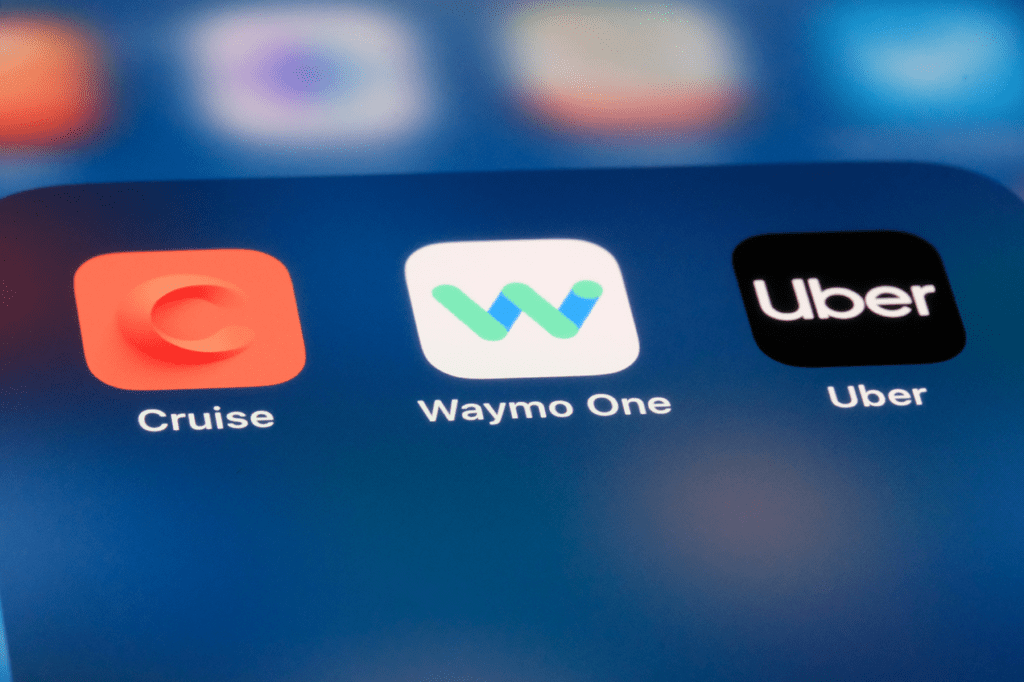Uber Partners on Driverless Cars

A world where driverless cars dominate the roads has come one step closer to reality, following a ground-breaking partnership between Uber and British AI start-up Wayve.
With the power of artificial intelligence and innovative technology, this collaboration aims to accelerate the development of autonomous vehicles, paving the way for safer, smarter, and more efficient driving experiences. But what does this partnership mean for the future of mobility? And how will it impact the insurance industry? Let’s dive into the details.
What is the Uber-Wayve Partnership All About?
Uber has teamed up with Wayve, a leader in AI software for autonomous vehicles, to integrate its cutting-edge technology into Uber’s vast ride-hailing network. While Uber has worked with other autonomous vehicle developers like Waymo and Cruise in the United States, this partnership marks Uber’s first significant foray into the world of British AI technology.
Founded in 2017 by Alex Kendall and Amar Shah, Wayve takes a unique approach to autonomous driving. Unlike traditional systems that rely on pre-programmed rules, Wayve’s AI software uses machine learning and real-world data to “teach” vehicles how to drive. This dynamic, adaptable system allows vehicles to respond to complex, unpredictable driving situations like a child running into the street or another car swerving suddenly. The ability to learn and adapt makes Wayve’s technology particularly promising for global deployment across Uber’s network.
The Future of Autonomous Vehicles: Level 2 to Level 4
A key focus of the Uber-Wayve partnership is the development of advanced driver assistance systems (ADAS) and fully autonomous vehicles. The goal is to bring these technologies to carmakers and eventually integrate Level 4 autonomous vehicles into Uber’s ride-hailing service.
To understand the significance of this, let’s break down what these different levels mean:
Level 2 systems can handle basic tasks like staying in lane and maintaining a safe distance from other vehicles. While useful, they still require the driver’s attention and intervention.
Level 3 cars are more advanced and can drive themselves in specific conditions. However, they still require the driver to take control when needed.
Level 4 autonomous vehicles, the ultimate goal of this partnership, are designed to handle almost all driving tasks without human input, even in potentially hazardous situations.
While Wayve and Uber are initially focusing on enhancing Level 2 and 3 capabilities, the long-term vision is to create scalable Level 4 autonomous vehicles that can operate globally. This ambitious goal could redefine the future of mobility, making shared, electric, and driverless cars a common sight on our roads.
Waymo: A Key Competitor in the Autonomous Vehicle Race
While Uber and Wayve are ramping up their collaboration, Waymo, a subsidiary of Alphabet, is a key competitor, particularly in California. Waymo has seen significant adoption, with its fleet of autonomous vehicles logging 80,000 trips per week. In San Francisco alone, it conducts 10,000 driverless trips weekly, a testament to its AV space progress. As Waymo expands its operations, it remains a leading player in the growing autonomous vehicle market.
Plan Insurance can provide bespoke taxi insurance quotes for all UK drivers. Just fill in our short online questionnaire, and our professional brokers will be in contact to arrange your insurance.
Why This Matters for Insurance
Traditional car insurance models must evolve as we transition from human-driven to AI-powered cars. For example, who is liable if an autonomous vehicle causes an accident? Is it the driver, the car manufacturer, or the software developer? These are just some of the questions that will need to be addressed as driverless cars become more mainstream.
Staying informed about advancements in AI software for autonomous vehicle development is crucial. As more Level 4 autonomous vehicles hit the roads, there will be a growing need for new insurance policies tailored to the unique risks and liabilities associated with these technologies. The partnership between Uber and Wayve could be a turning point, offering valuable insights into how the future of car insurance might unfold.
Uber Expands Autonomous Vehicle Efforts with Cruise
In addition to its collaboration with Wayve, Uber has recently announced a partnership with Cruise, an American autonomous vehicle company. This move will see Cruise’s driverless cars integrated into the Uber ride-hailing platform in select cities, further accelerating the company’s push into autonomous driving. Cruise has already demonstrated success with its autonomous fleets, and this partnership reinforces Uber’s strategy of working with multiple autonomous vehicle developers to achieve global scale and enhance its service offerings.
A Safer, Smarter Road Ahead?
Advoactes of driverless vehicles would argue that an exciting aspect of the Uber-Wayve partnership is the potential for safer roads. Autonomous vehicles, powered by AI software, could drastically reduce human error rates, which are responsible for most road accidents. By continuously learning and adapting to real-world driving environments, these vehicles could make split-second decisions that keep passengers, pedestrians, and other drivers safe.
Of course, there are still hurdles to overcome before we see fully autonomous cars on every street. Developing reliable AI software that can handle the complexities of urban driving is no small feat, and it may take years before Level 4 autonomous vehicles are ready for mass deployment. However, with companies like Wayve leading the charge and Uber providing a global platform, the path to driverless cars is beginning to look clearer after several years of stagnation.
In its press release announcing the Wayve partnership, Uber states it, “is a platform that opens up the world to new possibilities.” Its “mission is to create opportunity through movement.” The firm may find that its 1,000s of driver partners are keen to learn sooner rather than later where they fit within this bold, progressive vision of the future?
Find out why 96% of our customers have rated us 4 stars or higher, by reading our reviews on Feefo.





